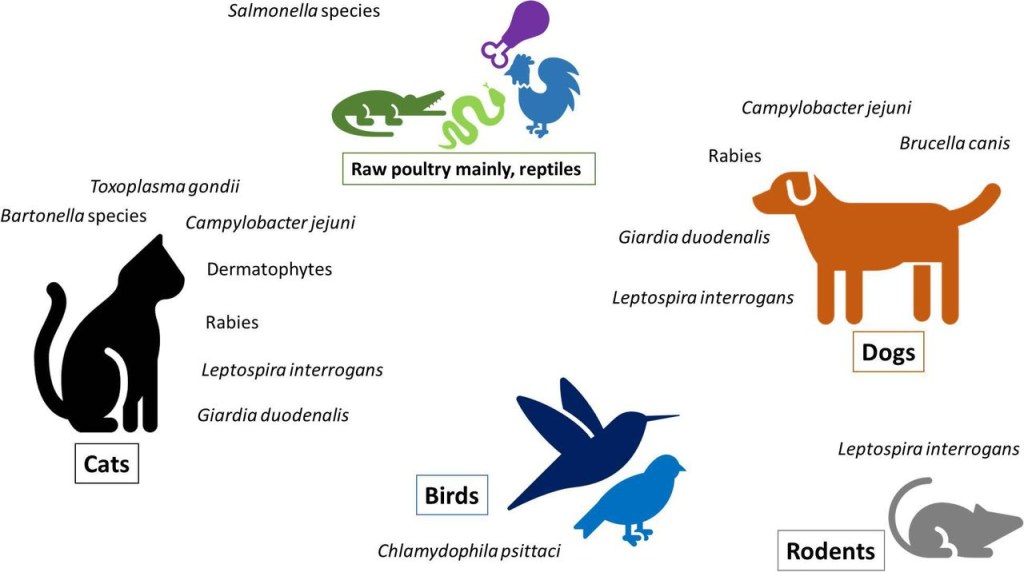Protect Your Loved Ones: Safeguarding Pets And Immunocompromised Patients – Take Action Now!
Pets and Immunocompromised Patients: A Guide to Safe and Healthy Interactions
Introduction
Dear Pets Lover,
3 Picture Gallery: Protect Your Loved Ones: Safeguarding Pets And Immunocompromised Patients – Take Action Now!



Welcome to our comprehensive guide on pets and immunocompromised patients. In this article, we will explore the importance of safe and healthy interactions between pets and individuals with compromised immune systems. Understanding the risks and taking necessary precautions can help ensure a harmonious and beneficial relationship between pets and their owners.

Image Source: mdanderson.org
Immunocompromised patients, including those with conditions such as cancer, HIV/AIDS, organ transplantation, or autoimmune diseases, have weakened immune systems. This makes them more susceptible to infections and illnesses, making it crucial to maintain a clean and safe environment. Let’s delve into the details and discover how pets can positively impact the lives of immunocompromised patients without compromising their health.
What are Pets and Immunocompromised Patients?
🐾 Pets and immunocompromised patients are individuals who have compromised immune systems due to various medical conditions or treatments. These patients often require extra care and precautions to prevent infections and diseases.

Image Source: bmj.com
🐾 Immunocompromised patients encompass a wide range of individuals, including those with cancer, HIV/AIDS, organ transplantation recipients, and autoimmune diseases.
🐾 Pets, on the other hand, can include dogs, cats, birds, and other domesticated animals that provide companionship and emotional support to individuals.

Image Source: vetvoice.com.au
🐾 The relationship between pets and immunocompromised patients can be beneficial but also poses certain risks that need to be managed.
🐾 Understanding the potential dangers and implementing preventive measures is crucial for both the health of the patient and the well-being of the pet.
🐾 Let’s explore further to find out who should be cautious and how to ensure a safe environment for both pets and immunocompromised patients.
Who Should Be Cautious?
🐾 Immunocompromised patients, such as those undergoing chemotherapy or with weakened immune systems, need to take extra precautions when interacting with pets.
🐾 Pregnant women and young children are also included in the group of individuals who should be cautious due to their vulnerable immune systems.
🐾 It is important to consult with healthcare professionals to assess the risks and determine appropriate guidelines for pet interactions based on the specific condition of the patient.
🐾 Veterinarians and pet owners should also be aware of the risks and take necessary precautions to prevent potential infections.
🐾 By understanding who should be cautious, we can effectively create a safe environment for both pets and immunocompromised patients.
🐾 Now, let’s explore when and where these interactions should take place to minimize risks and maximize benefits.
When and Where Should Interactions Occur?
🐾 Interactions between pets and immunocompromised patients should be carried out in controlled environments, such as the patient’s home or a clean and safe pet-friendly space.
🐾 It is essential to ensure that pets maintain good hygiene and are free from parasites, such as fleas and ticks.
🐾 Regular grooming, vaccinations, and routine veterinary check-ups are necessary to ensure the well-being of the pet and minimize the risk of transmitting infections.
🐾 Interactions should occur when the immunocompromised patient is feeling well and their healthcare provider has given the go-ahead for pet interactions.
🐾 Avoiding crowded places and minimizing exposure to other animals can also help reduce the risk of infections.
🐾 By following these guidelines, we can provide a safe and suitable environment for both pets and immunocompromised patients to interact.
Why is it Important to Take Precautions?
🐾 Taking precautions when it comes to pets and immunocompromised patients is crucial to prevent the transmission of infections and diseases.
🐾 Immunocompromised patients are more susceptible to infections, and even minor illnesses can have severe consequences.
🐾 Pets can carry bacteria, parasites, and viruses that can be harmful to immunocompromised patients if proper precautions are not taken.
🐾 By implementing preventive measures and maintaining good hygiene practices, we can reduce the risk of infections and create a safe environment for both pets and immunocompromised patients.
🐾 Now that the importance of precautions has been established, let’s explore how to safely introduce pets to immunocompromised patients.
How to Safely Introduce Pets to Immunocompromised Patients?
🐾 Introducing pets to immunocompromised patients should be done gradually and under the guidance of healthcare professionals.
🐾 It is important to ensure that pets are up-to-date on vaccinations and are free from any contagious diseases.
🐾 Proper hand hygiene, such as washing hands before and after pet interactions, is crucial for minimizing the spread of germs.
🐾 Avoiding pet bites and scratches, keeping pets off the patient’s bed and furniture, and maintaining a clean living environment are important measures to prevent infections.
🐾 Regular veterinary check-ups, proper nutrition, and exercise are essential for keeping pets healthy and minimizing the risk of transmitting infections.
🐾 By following these guidelines, we can ensure a safe and healthy introduction of pets to immunocompromised patients.
Advantages and Disadvantages of Pets for Immunocompromised Patients
Advantages:
🐾 Emotional support: Pets can provide comfort, companionship, and emotional support to immunocompromised patients, helping them cope with their medical conditions.
🐾 Stress reduction: Interacting with pets has been shown to reduce stress levels, lower blood pressure, and improve overall well-being.
🐾 Increased physical activity: Walking a dog or playing with a pet can encourage physical activity, which is beneficial for both physical and mental health.
🐾 Sense of purpose: Taking care of a pet can give immunocompromised patients a sense of purpose and responsibility, improving their self-esteem and overall quality of life.
Disadvantages:
🐾 Risk of infections: Pets can carry bacteria, parasites, and viruses that can pose a risk to immunocompromised patients if proper precautions are not taken.
🐾 Allergies: Some individuals may be allergic to pet dander, which can exacerbate respiratory symptoms and allergies.
🐾 Time and financial commitment: Taking care of a pet requires time, effort, and financial resources, which may be challenging for some immunocompromised patients.
🐾 Travel limitations: Owning a pet may limit the ability to travel, especially for individuals who require frequent medical appointments or treatments.
🐾 Caregiver responsibilities: Immunocompromised patients may require assistance from caregivers in taking care of their pets, adding to the overall caregiving responsibilities.
Frequently Asked Questions (FAQs)
Q: Can immunocompromised patients have pets?
A: Yes, immunocompromised patients can have pets, but precautions need to be taken to ensure their safety and well-being.
Q: What type of pets are suitable for immunocompromised patients?
A: Generally, low-allergen pets such as certain dog breeds, cats, birds, fish, or reptiles may be more suitable for immunocompromised patients. However, individual preferences and allergies should be taken into consideration.
Q: Can immunocompromised patients interact with service animals?
A: Yes, immunocompromised patients can interact with service animals, as these animals are specifically trained to assist individuals with disabilities and are generally well-groomed and healthy.
Q: Are there any specific hygiene practices that immunocompromised patients should follow when interacting with pets?
A: Yes, immunocompromised patients should wash their hands before and after pet interactions, avoid pet bites or scratches, and maintain a clean living environment. Regular veterinary check-ups and vaccinations for pets are also important.
Q: What should immunocompromised patients do if they want to get a pet?
A: Immunocompromised patients should consult with their healthcare providers and consider their individual health conditions and abilities before getting a pet. They should also research suitable pet options and ensure they can provide the necessary care and precautions.
Conclusion
In conclusion, pets can bring joy, companionship, and emotional support to immunocompromised patients. However, it is essential to take precautions to minimize the risk of infections. By following guidelines, such as maintaining good hygiene practices, regular veterinary check-ups, and gradual introductions, immunocompromised patients can safely enjoy the benefits of pet ownership. Consultation with healthcare professionals and open communication between pet owners and veterinarians are key to creating a safe and healthy environment for both pets and immunocompromised patients.
Remember, the bond between pets and their owners is a special one that can bring immense happiness, comfort, and healing. With proper care and precautions, pets can play a vital role in improving the overall well-being of immunocompromised patients.
Final Remarks
Disclaimer: The information provided in this article is for educational purposes only and should not be considered as medical advice. Consult with your healthcare provider for personalized guidance and recommendations regarding pets and interactions with immunocompromised patients. Always prioritize the health and safety of both the patient and the pet.
This post topic: Pets

